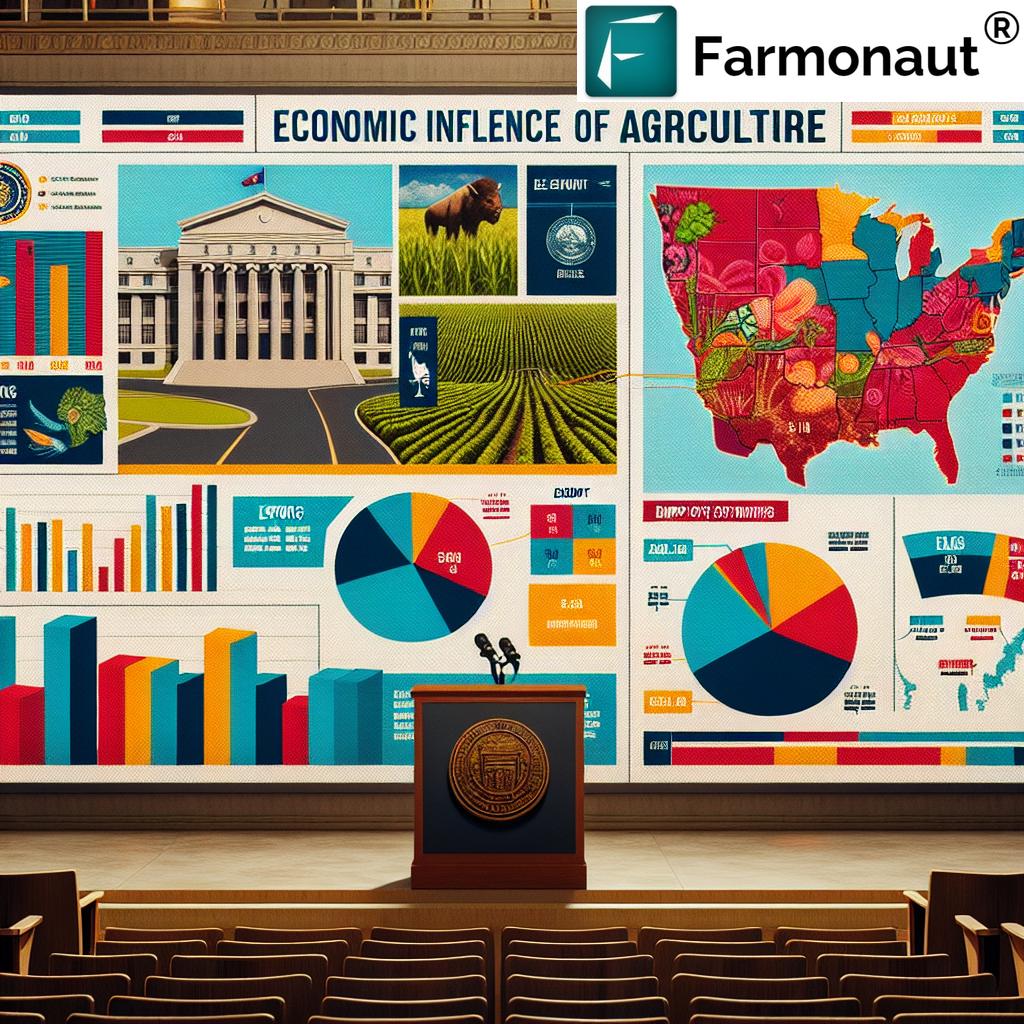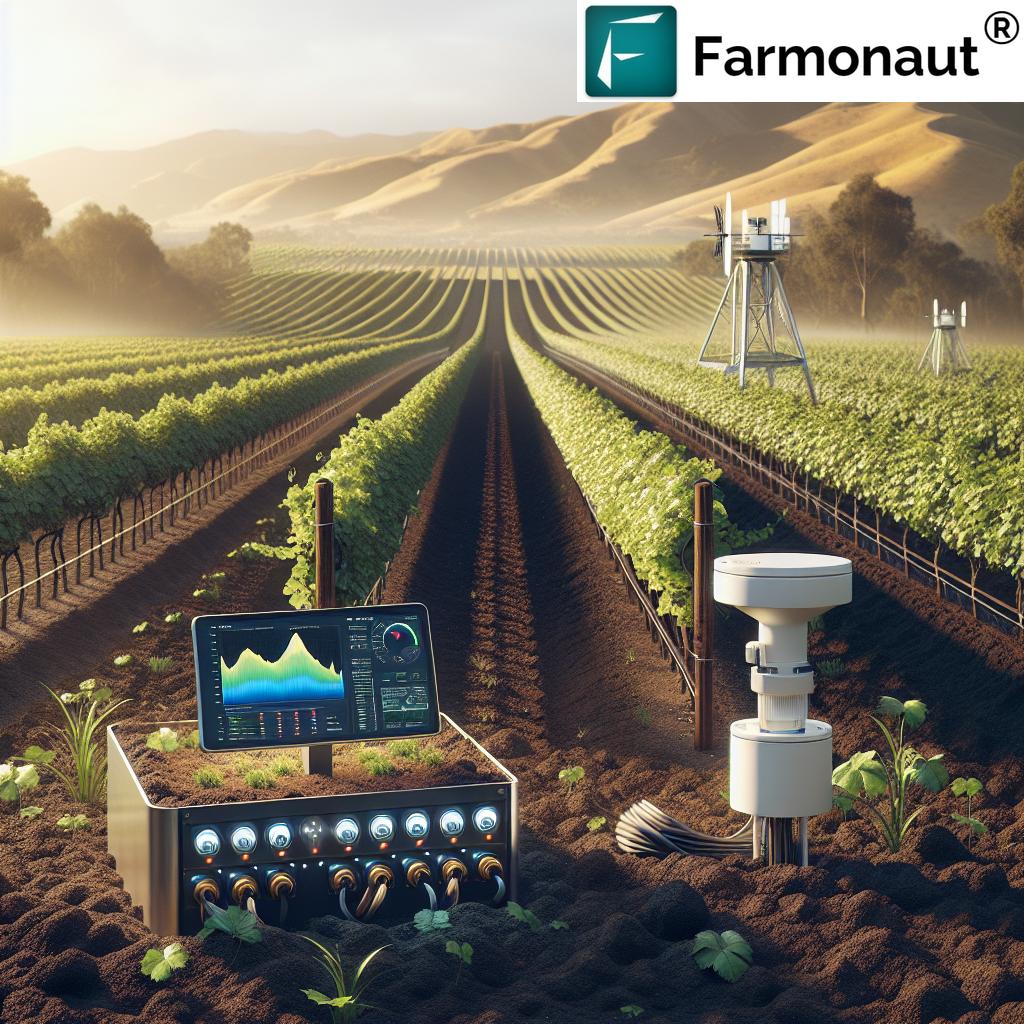Northwest Arkansas Agriculture: Exploring Economic Impact and Policy Trends in Bentonville and Beyond
“Northwest Arkansas contributes over 30% to the state’s GDP, largely driven by agriculture and business sectors.”
Welcome to our comprehensive exploration of Northwest Arkansas’s agricultural landscape, economic impact, and the intricate web of policy trends shaping the region. As we delve into the heart of the Natural State’s northwest corner, we’ll uncover the complex interplay between agriculture, politics, and economic development that defines this dynamic region.
The Economic Powerhouse of Northwest Arkansas
Northwest Arkansas, anchored by cities like Bentonville, has emerged as a crucial economic engine for the state. The region’s agricultural sector plays a pivotal role in this economic success story, contributing significantly to the state’s GDP and employment figures. Let’s examine the key factors driving this agricultural powerhouse:
- Diverse crop production
- Innovative farming techniques
- Strong agribusiness presence
- Integration of technology in agriculture
One of the technological advancements making waves in Northwest Arkansas is precision agriculture. Farmers in the region are increasingly turning to advanced solutions like those offered by Farmonaut, which provides satellite-based farm management tools. These technologies enable farmers to monitor crop health, optimize resource use, and make data-driven decisions, ultimately boosting productivity and sustainability.

The Political Landscape and Its Impact on Agriculture
“The Arkansas Republican Party has held a legislative majority for over a decade, impacting agricultural policies.”
The political climate in Arkansas, particularly in the northwest region, has a profound influence on agricultural policies and economic development. The long-standing Republican majority in the state legislature has shaped various aspects of the agricultural sector:
- Regulatory framework for farming practices
- Allocation of agricultural subsidies
- Environmental policies affecting agriculture
- Trade policies impacting agricultural exports
These political dynamics have created both opportunities and challenges for farmers in Northwest Arkansas. While some policies have supported agricultural growth, others have faced criticism for potentially favoring larger agribusinesses over small family farms.
Bentonville: A Microcosm of Northwest Arkansas’s Agricultural Evolution
Bentonville, known globally as the headquarters of Walmart, serves as a fascinating case study of how traditional agriculture intersects with modern business practices. The city’s agricultural roots remain strong, even as it has transformed into a hub of retail innovation. This unique blend has led to several interesting developments:
- Emergence of farm-to-table initiatives
- Growth of artisanal food producers
- Increased focus on sustainable agriculture
- Integration of agricultural tech startups
The city’s approach to agriculture reflects a broader trend in Northwest Arkansas, where traditional farming practices are being enhanced by technological innovations. For instance, the use of advanced crop advisory services has become increasingly common, helping farmers make informed decisions about planting, irrigation, and harvesting.
Economic Impact of Agriculture in Northwest Arkansas
To truly understand the significance of agriculture in Northwest Arkansas, let’s examine some key economic indicators across different counties in the region:
| County Name | Agricultural GDP (estimated) | Number of Farms (estimated) | Major Crops | Agricultural Employment (estimated percentage) |
|---|---|---|---|---|
| Benton County | $450 million | 1,800 | Poultry, Soybeans, Corn | 8% |
| Washington County | $380 million | 2,200 | Cattle, Hay, Wheat | 7% |
| Carroll County | $210 million | 1,500 | Beef Cattle, Poultry, Hay | 12% |
| State Average | $300 million | 1,800 | Varied | 9% |
| National Average | $275 million | 2,000 | Varied | 5% |
This data underscores the significant role agriculture plays in the region’s economy, often surpassing state and national averages in terms of GDP contribution and employment.
Policy Trends Shaping Northwest Arkansas Agriculture
Several key policy trends are currently influencing the agricultural landscape in Northwest Arkansas:
- Sustainable Agriculture Initiatives: There’s a growing push for policies that promote environmentally friendly farming practices. This includes incentives for organic farming and support for carbon footprinting in agriculture.
- Water Conservation Policies: Given the importance of water resources in agriculture, new policies are being developed to encourage efficient irrigation practices and protect water quality.
- Technology Adoption Support: Policymakers are increasingly recognizing the importance of agricultural technology. There are discussions about providing subsidies or tax breaks for farmers who adopt precision agriculture tools.
- Small Farm Preservation: In response to concerns about the consolidation of farmland, there are policy initiatives aimed at supporting small and medium-sized farms.
These policy trends reflect a delicate balance between promoting economic growth, preserving traditional farming practices, and embracing technological innovations in agriculture.

The Role of Technology in Shaping Northwest Arkansas Agriculture
As we navigate the complexities of Northwest Arkansas’s agricultural landscape, it’s crucial to recognize the transformative role of technology. Innovative solutions are reshaping how farms operate, leading to increased efficiency and sustainability. Let’s explore some key technological trends:
- Satellite-Based Farm Management: Tools like Farmonaut’s satellite imagery analysis are enabling farmers to monitor crop health, soil moisture, and other vital parameters remotely.
- AI-Driven Advisory Systems: Advanced AI algorithms are providing personalized recommendations to farmers, helping them make informed decisions about planting, pest control, and harvesting.
- Blockchain for Traceability: Blockchain-based traceability solutions are gaining traction, offering transparency in the agricultural supply chain and building consumer trust.
- Precision Agriculture: GPS-guided machinery and drones are allowing for precise application of inputs, reducing waste and environmental impact.
These technological advancements are not just improving farm productivity; they’re also attracting a new generation of tech-savvy farmers to the region, further driving innovation in the sector.
The Intersection of Agriculture and Business in Northwest Arkansas
Northwest Arkansas’s unique economic landscape is characterized by a strong interplay between agriculture and business. This synergy has led to several notable developments:
- Agtech Startups: The region is seeing a rise in agricultural technology startups, many of which are developing solutions tailored to local farming needs.
- Corporate-Farm Partnerships: Major corporations in the area are increasingly partnering with local farms for their supply chains, promoting local agriculture.
- Agricultural Tourism: There’s a growing trend of agritourism, where farms open their doors to visitors, offering experiences that blend agriculture with hospitality.
- Value-Added Agriculture: More farmers are venturing into processing and direct marketing of their products, capturing a larger share of the value chain.
This business-agriculture nexus is creating new opportunities for farmers and entrepreneurs alike, contributing to the region’s economic diversity and resilience.
Challenges Facing Northwest Arkansas Agriculture
Despite the positive trends, Northwest Arkansas’s agricultural sector faces several challenges that require attention:
- Climate Change: Shifting weather patterns are impacting crop yields and necessitating adaptations in farming practices.
- Labor Shortages: Finding skilled agricultural workers is becoming increasingly difficult, pushing for greater automation.
- Market Volatility: Fluctuations in commodity prices can significantly impact farm incomes, highlighting the need for diversification.
- Land Use Pressures: Urban expansion is putting pressure on agricultural land, raising concerns about long-term food security.
Addressing these challenges will require collaborative efforts between policymakers, farmers, and technology providers. Solutions like advanced fleet management systems can help optimize farm operations and mitigate some of these pressures.
The Future of Northwest Arkansas Agriculture
As we look to the future, several trends are likely to shape the agricultural landscape of Northwest Arkansas:
- Increased Technology Integration: We expect to see wider adoption of precision agriculture technologies, including AI-driven crop management systems and IoT sensors.
- Sustainable Farming Practices: There will likely be a greater emphasis on environmentally friendly farming methods, driven by both policy incentives and consumer demand.
- Diversification of Crops: Farmers may increasingly explore new crop varieties that are better suited to changing climate conditions.
- Direct-to-Consumer Models: More farms are likely to explore direct marketing channels, leveraging e-commerce and social media to connect with consumers.
These trends suggest a future where Northwest Arkansas agriculture becomes more technologically advanced, environmentally conscious, and closely connected to consumers.
The Role of Education and Research
The future of Northwest Arkansas agriculture is closely tied to advancements in education and research. The region’s universities and research institutions play a crucial role in driving innovation and preparing the next generation of agricultural professionals. Key areas of focus include:
- Developing drought-resistant crop varieties
- Researching sustainable pest management techniques
- Exploring new applications of AI and machine learning in agriculture
- Studying the economic impacts of various agricultural policies
These research efforts, combined with robust agricultural education programs, are essential for maintaining Northwest Arkansas’s competitive edge in the agricultural sector.
The Impact of Global Trends on Northwest Arkansas Agriculture
While our focus has been on Northwest Arkansas, it’s important to recognize that global trends significantly influence the region’s agricultural sector. Some key global factors include:
- International Trade Policies: Changes in trade agreements can open new markets or create challenges for local farmers.
- Global Climate Initiatives: International efforts to combat climate change are likely to shape local agricultural practices and policies.
- Technological Advancements: Global innovations in agtech, such as those offered by companies like Farmonaut, are rapidly adopted and adapted to local conditions.
- Changing Consumer Preferences: Global shifts towards organic, locally-sourced, or plant-based foods influence what Northwest Arkansas farmers choose to grow.
Understanding these global trends is crucial for Northwest Arkansas farmers and policymakers to make informed decisions and remain competitive in the global marketplace.
Conclusion: A Dynamic Future for Northwest Arkansas Agriculture
As we’ve explored throughout this comprehensive overview, Northwest Arkansas’s agricultural sector is at a fascinating crossroads of tradition and innovation. The region’s strong agricultural heritage, combined with its embrace of cutting-edge technologies and business practices, positions it uniquely in the national agricultural landscape.
From the bustling streets of Bentonville to the rolling farmlands beyond, Northwest Arkansas is writing a new chapter in its agricultural story. It’s a narrative defined by resilience, innovation, and a deep connection to the land. As the region navigates the complex interplay of economic forces, political shifts, and technological advancements, one thing is clear: the future of Northwest Arkansas agriculture is bright, dynamic, and full of opportunity.
For those looking to stay at the forefront of these exciting developments, tools like Farmonaut’s satellite-based farm management solutions offer a window into the future of agriculture. By embracing such innovations, Northwest Arkansas farmers are not just adapting to change – they’re driving it.
FAQ Section
Q: How significant is agriculture to Northwest Arkansas’s economy?
A: Agriculture is a crucial component of Northwest Arkansas’s economy, contributing significantly to the region’s GDP and employment. It accounts for a higher percentage of economic activity compared to state and national averages.
Q: What are the major crops grown in Northwest Arkansas?
A: The major crops in Northwest Arkansas include poultry, soybeans, corn, cattle, hay, and wheat. The region is known for its diverse agricultural production.
Q: How is technology changing farming practices in Northwest Arkansas?
A: Technology is revolutionizing farming in Northwest Arkansas through precision agriculture tools, satellite-based crop monitoring, AI-driven advisory systems, and blockchain-based traceability solutions. These technologies are improving efficiency, sustainability, and profitability.
Q: What are the main challenges facing farmers in Northwest Arkansas?
A: Key challenges include climate change impacts, labor shortages, market volatility, and pressures on agricultural land due to urban expansion. Farmers are also grappling with the need to adopt new technologies and sustainable practices.
Q: How are political trends affecting agriculture in the region?
A: Political trends, particularly the long-standing Republican majority in the state legislature, have shaped agricultural policies in areas such as regulations, subsidies, environmental standards, and trade. These policies have created both opportunities and challenges for farmers in the region.
Earn With Farmonaut: Affiliate Program
Earn 20% recurring commission with Farmonaut’s affiliate program by sharing your promo code and helping farmers save 10%. Onboard 10 Elite farmers monthly to earn a minimum of $148,000 annually—start now and grow your income!




















